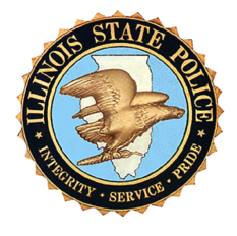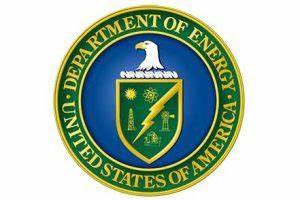In other news, concerns over the state’s “assault weapons” ban registration have prompted the Illinois State Police (ISP) to schedule a series of public hearings.
Also, Illinois received big news this week as they are set to benefit from a billion-dollar federal grant that will help establish a regional clean hydrogen hub.
DCFS under fire from bipartisan group of lawmakers

State Sen. Jil Tracy (R-Quincy) says DCFS continued to receive negative headlines this week. In just the past month, the Agency received a scathing audit highlighting its failures and mismanagement in protecting Illinois children, its troubled Director announced his resignation, and a conviction was handed down to a DCFS employee over the death of a young boy.
Now, the Department is under scrutiny by a bipartisan group of legislators on the Joint Committee on Administrative Rules (JCAR) regarding a proposed rule regulating daycare operations.
Tracy says the contentious rule, similar to the one that was partially suspended over the summer by JCAR, limited how long daycare assistants could monitor rooms of children younger than age two. Citing childcare shortages, members of the committee have been displeased with the rule and were anticipating DCFS to present a new rule that was agreed upon by childcare stakeholders. Instead, DCFS filed a rule that members say was not approved by childcare providers.
Members of the Committee were once again left frustrated, exchanging concerns about DCFS’ lack of transparency and honesty throughout the rulemaking process. Ultimately, JCAR approved the controversial rule, saying that they were left with no choice because given the timeline, the rule either needed to be accepted or there would be no rule at all, which would have left daycares with even more confusion about how to run their facilities.
Senate Republicans have continuously called for structural changes within the Department and say that this latest incident is just another example of the dysfunction at the Agency.
‘Assault Weapons’ registration rule needs more clarity, ISP to hold public hearings

Confusion over the state’s “assault weapons” ban registration process has prompted the ISP to hold a series of public hearings.
Following this week’s JCAR meeting, where members expressed concern over the lack of clarity found in the rules – including what specific firearms are subject to registration – the ISP agreed to hold three hearings to answer the public’s questions and comments.
Tracy says complicating matters further are pending lawsuits at the federal level over the constitutionality of the new law, worrying law-abiding gun owners about what happens to their information if the law is eventually overturned.
Enacted earlier this year, the law requires those who owned the now-banned firearms prior to Jan. 10, 2023, to register them by Jan. 1, 2024, in order to possess them legally without facing criminal penalties. Registration of those firearms began Oct. 1.
The Illinois State Police announced its first hearing scheduled for Nov. 2 at 9:30 a.m. in Room D1 of the Stratton Building in Springfield. The other dates and locations have not yet been set.
Illinois benefits from federal grant for regional clean hydrogen hub

Illinois is set to benefit from the recent announcement that the Midwest Alliance for Clean Hydrogen’s (MachH2) bid to create a regional hydrogen hub has been awarded a billion-dollar grant from the United States Department of Energy.
The MachH2’s Midwest Hydrogen Hub will be located throughout Illinois, Indiana, and Michigan, and will be utilized for decarbonization purposes through strategic hydrogen uses including steel and glass production, power generation, refining, heavy-duty transportation, and sustainable aviation fuel. The Midwest Hydrogen Hub plans to produce hydrogen by leveraging the region’s diverse energy sources, including low-cost nuclear, natural gas, and renewable energy. Given Illinois’ vast and diverse energy portfolio – including being a national leader in nuclear energy production – Illinois will likely play a vital role in the hub’s hydrogen production.
The Hub is also expected to create more than 12,000 well-paying jobs throughout its construction and roughly 1,500 permanent skilled jobs.
The Midwest Hydrogen Hub is one of seven regional clean hydrogen hubs that were selected to receive a total of $7 billion in Bipartisan Infrastructure Law funding to accelerate the domestic market for low-cost, clean hydrogen.
